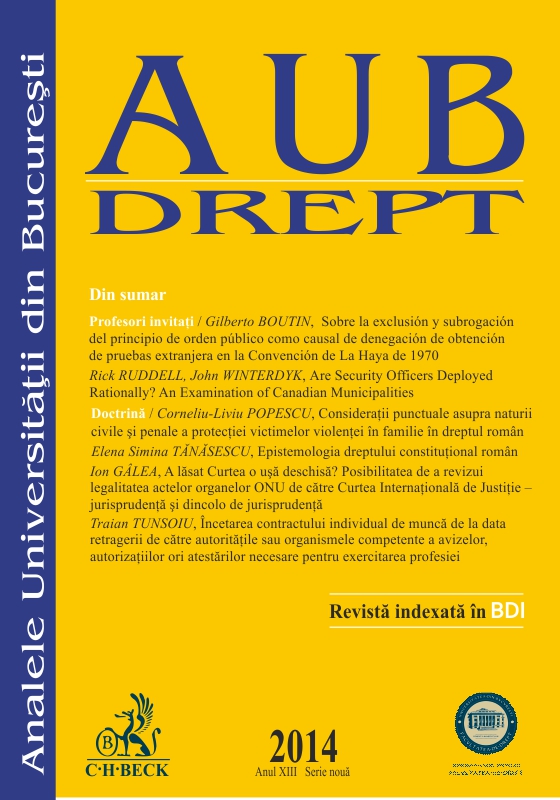Are Security Officers Deployed Rationally? An Examination of Canadian Municipalities
Are Security Officers Deployed Rationally? An Examination of Canadian Municipalities
Author(s): Rick Ruddell, John WinterdykSubject(s): Law, Constitution, Jurisprudence, Criminal Law
Published by: C.H. Beck Publishing House - Romania
Keywords: security officers; police officer strength; police deployment; social control; private security;
Summary/Abstract: Globally, there is increasing interest in better understanding the involvement of security officers in the delivery of social control. One step in this undertaking is to shed light on the distribution of security officers across different jurisdictions and the degree to which crime-related factors lead to deploying a higher number of security officers per community residents (i.e., security officer strength). If security personnel are deployed according to the rational choice hypothesis, their numbers should increase in higher crime communities. This cross-sectional study examined the determinates of security officer strength in Canadian municipalities of over 20,000 residents in 2006 (n=68) and 2011 (n=65). Consistent with expectations, we found a clear relationship between police-reported violent crime and security personnel. There was not, however, a significant association between overall crime or non-violent offenses and security officer strength. Other factors associated with higher ratios of officers to residents were jurisdictions with a higher income and residential density, provinces where trust and confidence in the police was higher and an indicator of disorder. Implications for theories of social control are discussed, as well as several implications for such research and knowledge in Romania and other Southeastern European countries.
Journal: Analele Universității București – Seria Drept (AUB)
- Issue Year: 2014
- Issue No: 1
- Page Range: 19-36
- Page Count: 18
- Language: English
- Content File-PDF

